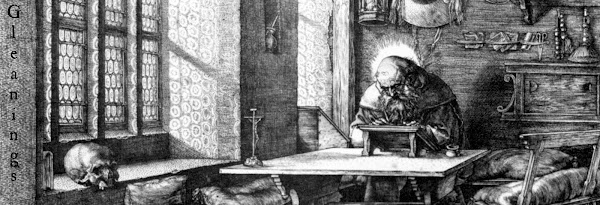Scola Gangraenae. — “The office of the Liberal school is to proclaim the existences it annuls, and to annul the existences it proclaims. There is none of its principles which is not accompanied by a counter principle which destroys it. Thus, for example, it proclaims monarchy, and immediately ministerial responsibility, and consequently the omnipotence of the responsible ministry, which is contradictory of monarchy. It proclaims ministerial responsibility, and immediately the sovereign intervention in matters of government, of the deliberative assemblies, which is contradictory of the omnipotence of the ministers. It proclaims the sovereign intervention in the affairs of state, of the political assemblies, and immediately, the right of the electoral districts to decide on the last appeal, which is contradictory of the sovereign intervention of the assemblies. It proclaims the right of supreme arbitration, which resides in the electors, and immediately it accepts, more or less explicitly, the supreme right of insurrection, which is contradictory of that pacific and supreme arbitration. It proclaims the right of insurrection of the multitude, which is to proclaim its sovereign omnipotence, and immediately, it establishes the laws of electoral eligibility, which is to ostracise the sovereign multitude. And with all these principles and counter principles it aims at one thing—to discover, through artifice and industry, an equilibrium which it never discovers, because it contradicts the nature of society and the nature of man. There is only one power for which the Liberal school has not sought its corresponding equilibrium—the power of corruption. Corruption is the god of the school, and as a god, it is at one and the same time, in all places. In such a way has the Liberal school combined things, that when it prevails, all have necessarily to be corrupters or corrupted; for where there is no man who cannot be Caesar, or vote for Caesar, or proclaim Caesar, all must be Caesars or praetorians. For this reason all the societies which fall under the domination of this school die the same death—all die gangrened. The kings corrupt the ministers, by promising them eternity; the ministers the kings, by promising them an expansion of their prerogative. The ministers corrupt the representatives of the people, by placing all the dignities of the state at their feet; the assemblies corrupt the ministers. The members traffic with their power, the electors with their influence; all corrupt the masses with their promises, and the masses corrupt all with their clamour and threats.”
Juan Donoso Cortés, Marqués de Valdegamas, Essays on Catholicism, Liberalism, and Socialism, tr. W. McDonald (Dublin: M.H. Gill & Son, 1879), pp.181-3. (Cf., “Although the liberal bourgeoisie wanted a god, its god could not become active; it wanted a monarch, but he had to be powerless . . .”. Carl Schmitt, Political Theology, tr. G. Schwab (Chicago and London: University of Chicago Press, 2005), p.59.)
